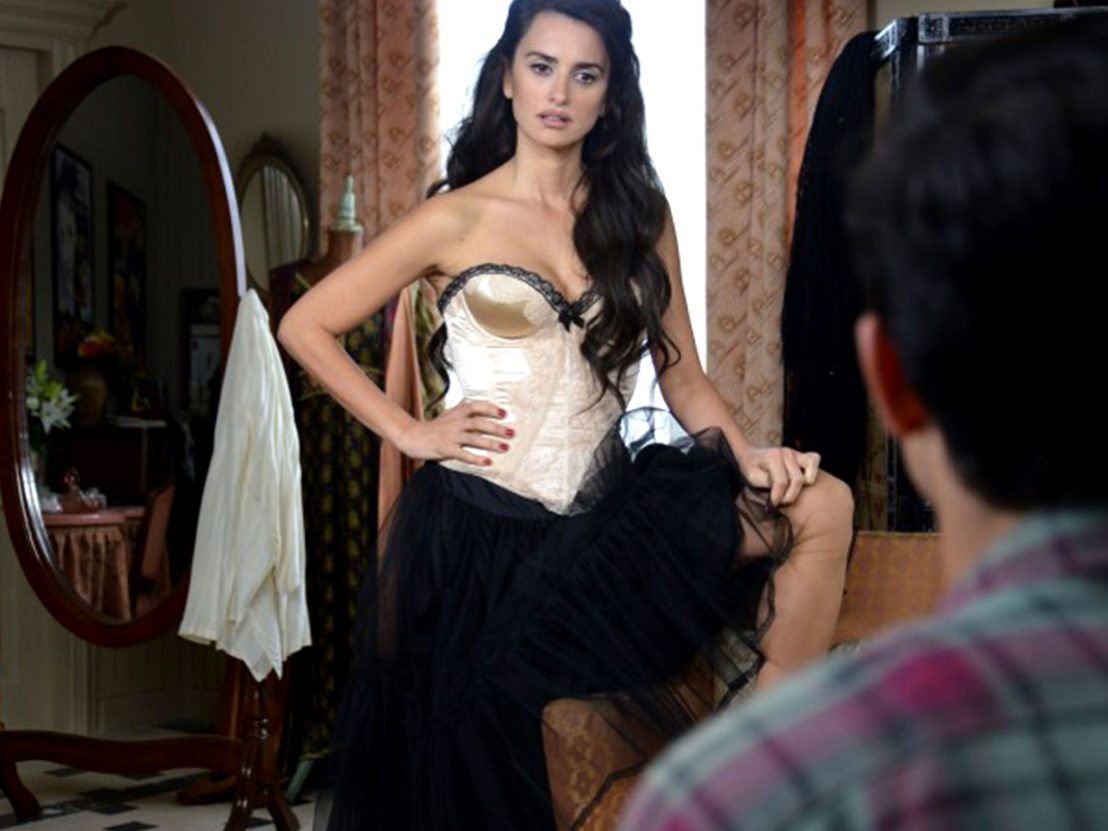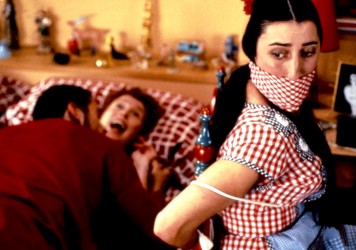
Penélope Cruz stars in this frolicsome love letter to Spanish cinema’s golden age from director Fernando Trueba.
There’s certainly something for everyone in Fernando Trueba’s madcap love letter to Spanish cinema’s golden ’50s. There’s frothy backstage melodrama, a larky caper, a grisly murder, comedy anal rape, brutal maiming, anti-Franco fervour, a film-within-a-film, Penélope Cruz getting steamy with a shirtless Kirk Douglas and Cary Elwes mugging it up in a doublet and hose to capture that all-important Robin Hood: Men in Tights vibe. Does it all gel? No. Is it fun? Just about.
The shamelessly-monickered Macarena Granada (Cruz) returns home to the loving embrace of Spain. Flush with Hollywood success, Tinseltown gossip and a goony matinee idol American husband (Elwes channelling some sort of Andy Kaufman creation), she is to star in a big-budget film about the life of Queen Isabella. Also returning to Madrid is legendary director – and Macarena’s former flame – Blas Fontiveros. He has not had such a good time of it.
Sent to one of Franco’s infamous internment camps, he has long been considered dead. Eventually returning to Spain he finds work on the production, but is soon spotted by one of Franco’s informers and sent to a work camp with a price on his head. The production continues, Macarena chooses a new lover, Elwes tests the patience and everyone flounces around in that particular Spanish way.
Then, about 90 minutes in, it seems to dawn on Trueba that – amid all the soapy movieland fun – he’s rather forgotten about the plot, and so hastily draws up a ludicrous caper in which Cruz and co use the movie magic at their disposal in order to rescue Fontiveros. It arrives late, goes on far too long and is devoid of any wit, complexity or obstacle, but it is at least energetic and gives the final act of the film the kick in the backside it sorely needs.
Though never less than fun, The Queen of Spain never finds a persuasive tone. The enjoyable flim-flam of the first half of the film proves to be largely inconsequential. This means there’s too little time for the meat of the film – the caper itself – to be satisfactorily set up and staged. Like the tortoise and the hare, it takes so long to get going that the end is one mad, unsuccessful dash.
Published 14 Feb 2017

In anticipation of Pedro Almodóvar’s new film Julieta, revisit the Spanish director’s liberating 1988 gem.

Sebastián Lelio’s follow up to 2013’s Gloria is a surprisingly inert and cliché-driven portrait of a trans woman.

By Matt Thrift
With the Spanish maestro back in action we take a look back at his formative years.